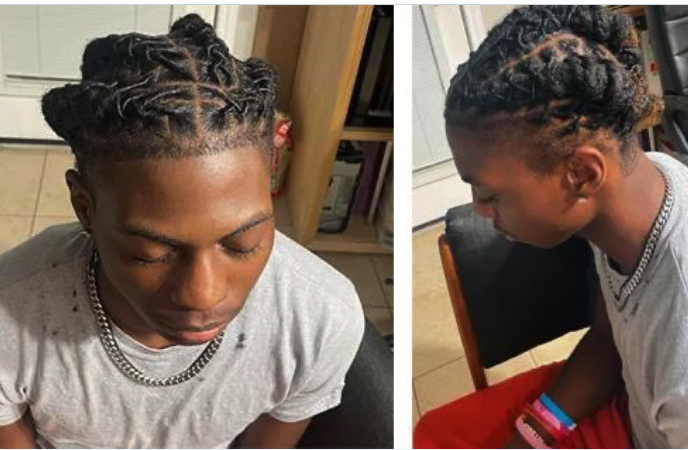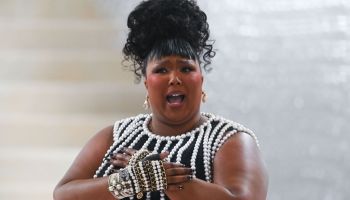
Source: x / x
On Thursday, a Texas judge ruled in favor of a school district’s decision to suspend a Black student because of his hairstyle, saying that the months-long punishment did not violate the state’s law prohibiting race-based hair discrimination.
According to AP, State District Judge Chap Cain III ruled that the Barbers Hill school’s suspension of Darryl George did not violate the state’s CROWN Act and George is instead violating the school’s policy on hair length.
During the one-day trial in Anahuac, Texas, school district attorneys didn’t offer any witnesses, but did submit an affidavit from the superintendent defending the school district’s punishment. The school district also continued its claims that its suspension didn’t violate the CROWN Act because the law doesn’t specifically cover hair length.
Darryl George’s attorney Allie Booker called state Rep. Ron Reynolds, one of the co-authors of the CROWN Act, to the stand to testify about the legislation, inferring that the length of George’s hair is “very nature of the style.”
“Anyone familiar with braids, locs, twists knows it requires a certain amount of length,” Reynolds told the court.
Darryl George, 18, was removed from his high school and sent to a disciplinary alternative education program after being suspended for more than a month over his choice to wear his locs unpinned and below his eyebrows.
George was sent to the alternative program EPIC from Oct. 12 through Nov. 29, for what the principal called a “failure to comply” with campus and classroom regulations.
In December, Darryl George’s family filed a formal complaint with the Texas Education Agency, as well as a federal civil rights lawsuit against Gov. Greg Abbott, Attorney General Ken Paxton, and the school district for violating the state’s CROWN ACT.
“I love my hair, it is sacred and it is my strength,” said George in court documents.
Texas superintendent defended the school district’s position to repeatedly suspend Darryl George for how he wore his locs.
“Being an American requires conformity with the positive benefit of unity,” wrote Poole, discussing George’s case.
He continued, “We have taken the highly unusual step of seeking a declaratory judgment in state district court to verify our interpretation.”
Poole also said in the letter that Darryl George moved to the district from a place that allows longer hair and that the decision is up to local officials.
“Ultimately, this is an issue of local control and deciding who should be setting the policies, goals, and expectations of our school district,” Poole wrote.
The CROWN ACT, or House Bill 567, went into effect Sept. 1, 2021. Since then, over 20 states have enacted some form of the CROWN Act, which bans discrimination in schools and the workplace based on Black hair texture and style.
CROWN, which stands for Creating a Respectful and Open World for Natural Hair, protects individuals from discrimination over natural and protective hairstyles in the workplace, schools and other institutions. The legislation also ensures that people with unique hairstyles like locs, Bantu knots or afros, aren’t deprived of educational and employment opportunities. New Jersey Rep. Bonnie Waston Coleman is fighting for the Senate to pass the historic legislation across the United States.
SEE ALSO:
Texas Superintendent Takes Out Full-Page Ad Supporting Suspension Of Black Student For Locs
Black Student Suspended For Locs Fears Expulsion: ‘Can’t Believe I’m Going Through This’
The post Justice For Darryl George: Judge Backs School’s Decision To Suspend Black Student Over Locs appeared first on NewsOne.
Justice For Darryl George: Judge Backs School’s Decision To Suspend Black Student Over Locs was originally published on newsone.com















